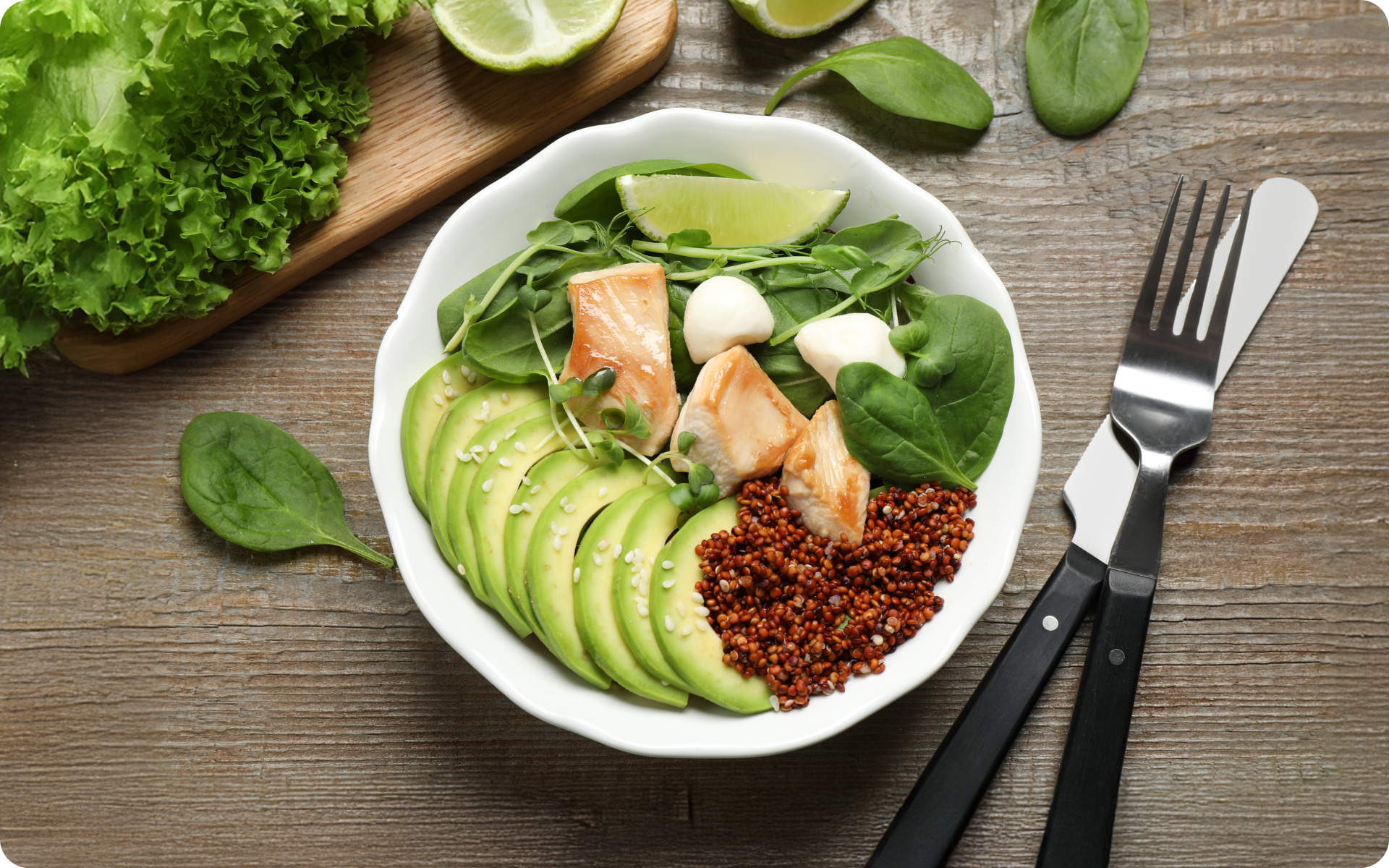Every so often, a new diet plan gains popularity with its proponents claiming that it’s the best new thing not just for weight loss, but also for improved health. The carnivore diet is one such meal plan.
A study conducted via a social media survey and published in late 2021 found that individuals following the carnivore diet experienced few adverse effects and reported high satisfaction and health benefits. However, its impact on cardiovascular risk factors was variable within the study population (1).
However, less than a year later in 2022, nutrition experts expressed concerns over the validity of the above study and its findings, suggesting that not only were many of the self-reported claims unverified, but also that the findings were likely limited by bias and other confounding factors. These experts urged many to take caution before undertaking a carnivore diet meal plan (2).
The varying expert opinions and the overall limited scientific research on the matter make it more challenging to determine whether attempting a carnivore diet 7-day meal plan is a good idea or not.
To make this decision easier, here is all the information you need to know about this diet:
What Does A Typical Carnivore Diet Daily Meal Plan Include?
The carnivore diet daily meal plan is an animal-based diet that only includes foods such as meat, chicken, and other poultry, eggs, and some dairy products, as well as water.
This meal plan is an exclusively meat- and animal-based diet that eliminates most, or all, plant-based foods (1, 2).
What Do I Eat In A Day As A Carnivore?
As described above, the carnivore diet is a fairly restrictive meal plan that eliminates most major food groups, leaving you to consume primarily protein and some fats.
The following table is a carnivore diet food list that will help give you a clearer picture of the foods you are allowed to consume daily while following a carnivore diet meal plan:
| Food Group | Options |
|---|---|
| Meats | Beef, goat, pork, lamb, game meats, etc. |
| Poultry | Chicken, turkey, or duck |
| Organ Meats | Liver, heart, tripe, oxtail, kidney, etc. |
| Fish & Seafood | Salmon, tilapia, crab, shrimp, trout, mackerel, herring, oysters, clams, etc. |
| Other animal products | Eggs and broth |
| Dairy | Heavy cream, butter, hard cheeses, etc. Consume these in small amounts. |
| Water | No specified amount |
Things to note:
- The carnivore diet experts recommend that you cook your meals in butter, ghee, lard, or tallow
- Seasonings such as salt, pepper, chili paste, cumin, paprika, and garlic are allowed as they do not contain carbs.
- Foods like yogurt, milk, and soft cheese are a grey area. While some followers of this meal plan choose to consume them, they are not typically allowed, as they are higher in carbohydrates.
When it comes to weight loss, progress is made by inches, not miles, so it’s much harder to track and a lot easier to give up. The BetterMe: Health Coaching app is your personal trainer, nutritionist, and support system all in one. Start using our app to stay on track and hold yourself accountable!
Which Foods Should You Not Include In The Carnivore Diet Daily Meal Plan For Weight Loss?
As previously mentioned, this is an animal-based diet that eliminates almost all plant-based foods. If you want to be strict with this meal plan, eliminate the following foods from your refrigerator, pantry, and shopping list.
| Category | Options |
|---|---|
| Starchy and Non-starchy vegetables | Potatoes, dark leafy greens, cruciferous vegetables (cabbage, cauliflower, broccoli, etc.), bell peppers, carrots, celery, eggplant, and more |
| Whole and Refined Grains | Oats, rice, pasta, barley, quinoa, millet, bread, wheat, and couscous, among others. |
| Fruits | All types of berries, pineapples, watermelon, peaches, kiwi, oranges and other citrus fruits, apples, bananas, etc. |
| Legumes | All bean variations, peas, all types of lentils, chickpeas, soybeans (including all soy products) |
| Nuts and Seeds | Almonds, flax seeds, peanuts, chia seeds, brazil nuts, pecans, sunflower seeds, etc. |
| Alcohol | All types of alcohol, beer, wine, and even hard liquor, are made from plant products |
| Sugars | Table sugar, maple syrup, honey, etc. |
| Beverages that are not water | Coffee, tea, and matcha are prohibited as they come from plants Fruit juice comes from plants. Sodas and energy drinks - Not only are they not derived from animal products, but they also have added sugars/artificial sweeteners. |
Read more: 30 Day High Protein Meal Plan For Beginners
How Much Should I Eat Daily On A Carnivore Diet?
Unfortunately, the carnivore diet daily meal plan for beginners provides little guidance on the daily calorie intake required. Information on serving sizes, meal frequency, and even snack options is also unavailable.
Some online sources suggest that beginners should aim to consume 1 to 2 pounds of meat per day.
Others advise carnivore diet beginners to:
- Eat until they feel full and stop simply.
- Wait until you’re hungry, then eat until you’re full, and stop again.
- Repeat this eating cycle.
None of these claims, however, has scientific backing, so we cannot say if they are factual or not.
What Is A Balanced Carnivore Diet Daily Meal Plan?
There is no way to make the carnivore diet meal plan balanced.
A balanced diet provides the body with all the essential nutrients, vitamins, and minerals required to maintain cells, tissues, and organs as well as to function correctly.
A balanced diet requires the consumption of vitamins, minerals, carbohydrates, proteins, and fats (3).
Following the above definition, it is clear that the carnivore diet daily meal plan is not a balanced diet. As previously stated, the carnivore diet is an animal-based diet that eliminates all plant products. By doing so, this diet has you consuming essentially proteins and some saturated fats, while simultaneously eliminating all carbohydrates.
If you desire a balanced diet while on a weight-loss diet, then this meal plan is not for you.
Remember that researchers have linked the consumption of unbalanced/unhealthy diets to a myriad of metabolic alterations, like:
- Systemic inflammation
- Insulin resistance
- Dyslipidemia
- Hypertension
All these metabolic alterations can increase the risk of chronic diseases such as obesity, type 2 diabetes, cardiovascular disease, cognitive dysfunction, and certain cancers, as well as premature death (4, 5, 6).
Is It Okay To Do The Carnivore Diet Every Day?
No, it is not. No matter how easy the carnivore diet looks, it remains a highly restrictive, unhealthy, and unbalanced diet. Yes, the meal plan is high in protein, which is excellent for your weight loss goals, but it’s not the only factor. The carnivore diet is also high in saturated fats and low in fiber. These aspects do not make a healthy diet.
Note That:
If you are considering following this meal plan due to its high protein content, there are many better options available.
Tips to help with this include:
- Prioritize lean protein: Lean meats, poultry, fish, low-fat dairy, and seafood. Plant sources, such as legumes, lentils, nuts, seeds, and soy products, are also excellent options.
- Consume a balanced diet: Your diet should also include a variety of fruits, non-starchy vegetables, starchy vegetables, legumes, whole grains, and healthy fats.
- Consume 1.2 to 1.6 g of protein per kilogram of body weight per day: Research shows that this is the optimal intake for weight loss and muscle building (7, 8, 9).
- Spread your protein throughout the day: You don’t have to consume this much protein in one meal. You can spread out the intake between 3-6 meals.
- Eat on a calorie deficit: This only applies if your goal for the diet is weight loss. Reduce your daily average calorie intake by 500 – 750 calories (10).
Research indicates that balanced high-protein diets can aid in weight loss by increasing satiety, enhancing thermogenesis, and promoting muscle growth, particularly when combined with a resistance training workout plan.
They can also help lower cardiovascular disease risk factors, especially when balanced, nutrient-dense, and include a variety of plant-based foods (11, 12).
How Long Can I Stay On A Carnivore Diet?
Online sources do not have a consensus on how long one can stay on this eating plan.
Some advise no more than 7 to 10 days, while others suggest up to 3 months.
Others say that as long as you are not experiencing any adverse effects, you can continue with the meal plan for 6 months to a year.
We, on the other hand, would recommend not even starting the meal plan in the first place. The meal plan is a fad that is very restrictive and unbalanced; the only study that supported it was highly limited in information and subsequently debunked by nutritional experts. There are many better weight loss and muscle-building meal plans than this.
The BetterMe: Health Coaching app will provide you with a host of fat-frying fitness routines that’ll scare the extra pounds away and turn your body into a masterpiece! Get your life moving in the right direction with BetterMe!
Why Do I Feel So Bad On The Carnivore Diet?
As previously shown, the carnivore diet is unbalanced. Such a meal plan may make you feel bad due to potential side effects such as:
- Nutritional deficiencies: These occur due to a lack of essential nutrients, vitamins, and minerals, as the diet is highly restrictive.
- Digestive issues: E.g., constipation, diarrhea, or bloating. This issue is likely due to having too much protein and fat in the diet and not enough fiber.
Read more: 50 Grams Of Carbs Per Day Meal Plan For The Keto Diet
Why Am I Gaining Weight On A Carnivore Diet?
You are likely consuming more calories than you need.
Consuming more calories than your body burns in a day means that the extra calories are converted into stored fat in the body, which, over time, leads to increased body fat and weight gain.
Reducing your calorie intake could help reverse this. But at the same time, remember that the research on the carnivore diet for weight loss is severely limited, and thus, there is no guarantee that you will eventually see the desired results.
Watching your calorie intake, i.e., eating in a calorie deficit and increasing your daily physical activity, can help increase calorie burning, thereby speeding up the rate of weight loss. Note that you shouldn’t expect a weight loss of more than 2 pounds a week on any diet (13). Any more than this qualifies as rapid weight loss, which is hard to maintain long-term. It’s worth noting that the carnivore diet is not a healthy or balanced option, and it’s not suitable for the extended period required to achieve meaningful and sustainable weight loss. You may want to consider other options that you can stick with in the long term. There is no verifiable information on this. However, for weight loss or muscle building, scientific research recommends an intake of 1.2 to 1.6 g of protein per kilogram of body weight per day (7, 8, 9) – this may be a good starting point. No, you cannot, as the diet prohibits all foods that are not derived from animals. None. Fruits are not considered animal products and are therefore not included in this meal plan.Frequently Asked Questions
How can I speed up my weight loss on the carnivore diet?
How much protein should I eat per day on a carnivore diet?
Can I eat avocado on a carnivore diet?
What fruits can I eat on a carnivore diet?
The Bottom Line
If you were to ask us, we wouldn’t recommend trying the carnivore diet as a daily meal plan.
Not only is there insufficient research to support its purported benefits, but the eating plan also appears to have more disadvantages than benefits. There are many weight loss and muscle-building diets that allow you to enjoy meat and other proteins in a balanced and sustainable way, along with other healthy, nutritious foods from plants and animals. Opt for those, eat in a calorie deficit if you want to lose weight, and increase your physical activity. These lifestyle changes will help you reach your goals in a much healthier way.
DISCLAIMER:
This article is intended for general informational purposes only and does not serve to address individual circumstances. It is not a substitute for professional advice or help and should not be relied on for making any kind of decision-making. Any action taken as a direct or indirect result of the information in this article is entirely at your own risk and is your sole responsibility.
BetterMe, its content staff, and its medical advisors accept no responsibility for inaccuracies, errors, misstatements, inconsistencies, or omissions and specifically disclaim any liability, loss or risk, personal, professional or otherwise, which may be incurred as a consequence, directly or indirectly, of the use and/or application of any content.
You should always seek the advice of your physician or other qualified health provider with any questions you may have regarding a medical condition or your specific situation. Never disregard professional medical advice or delay seeking it because of BetterMe content. If you suspect or think you may have a medical emergency, call your doctor.
SOURCES:
- Behavioral Characteristics and Self-Reported Health Status among 2029 Adults Consuming a “Carnivore Diet” (2020, cdn.nutrition.org)
- Limitations of Self-reported Health Status and Metabolic Markers among Adults Consuming a “Carnivore Diet” (2022, cdn.nutrition.org)
- STUDY ON AWARENESS OF NUTRITIONAL BALANCED DIET AND EATING PRACTICES AMONG COLLEGE STUDENTS (2020, researchgate.net)
- Healthy and unhealthy dietary patterns and the risk of chronic disease: an umbrella review of meta-analyses of prospective cohort studies (2020, pubmed.ncbi.nlm.nih.gov)
- Unbalanced Diets: High-Fat, High-Sucrose and High-Protein Diets (2025, pmc.ncbi.nlm.nih.gov)
- Unhealthy diet (2025, emro.who.int)
- The role of protein in weight loss and maintenance (2015, sciencedirect.com)
- Systematic review and meta-analysis of protein intake to support muscle mass and function in healthy adults (2022, pubmed.ncbi.nlm.nih.gov)
- Synergistic Effect of Increased Total Protein Intake and Strength Training on Muscle Strength: A Dose-Response Meta-analysis of Randomized Controlled Trials (2022, sportsmedicine-open.springeropen.com)
- Optimal Diet Strategies for Weight Loss and Weight Loss Maintenance (2020, pmc.ncbi.nlm.nih.gov)
- Protein, weight management, and satiety (2008, ajcn.nutrition.org)
- Clinical Evidence and Mechanisms of High-Protein Diet-Induced Weight Loss (2020, pmc.ncbi.nlm.nih.gov)
- Steps for Losing Weight (2025, cdc.gov)













